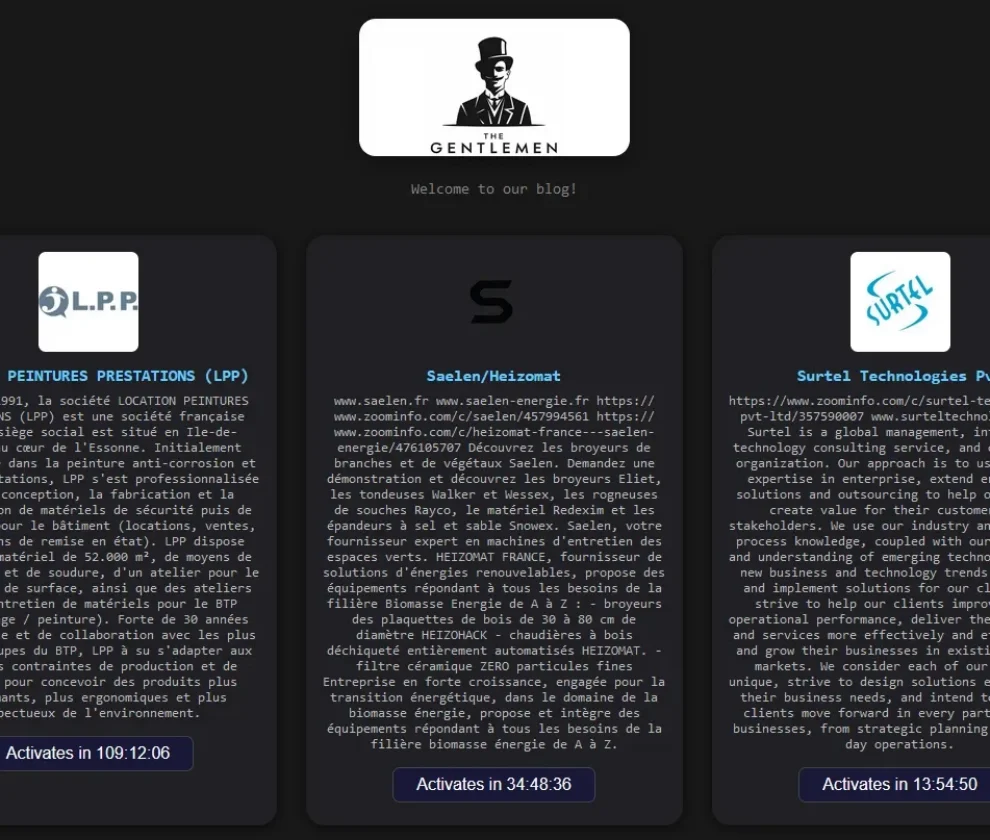Ransomware attacks continue to dominate the cyber threat landscape, posing significant risks to critical industries like telecommunications. A recent attack on VZW Avalon, a Belgium-based telecom operator, highlights the need for improved defenses and strategic responses across the sector. This article delves into the impact of ransomware on telecom operators, prevention measures, and crisis management strategies to mitigate future risks.
Understanding Ransomware: How It Works and Its Tactics
Ransomware is a type of malicious software designed to block access to computer systems or exfiltrate sensitive data until a ransom is paid. In the case of VZW Avalon, over 38,000 files, equating to approximately 31 GB of critical data, were potentially compromised. While the attack’s financial demands remain unknown, the potential for lasting reputational and operational damage is undeniable.
Why Are Telecom Operators a Prime Target?
Telecom operators handle vast quantities of sensitive information, ranging from personal customer details to essential network infrastructure data. This makes them a lucrative target for cybercriminals seeking to profit from selling stolen data, creating service disruptions, or leveraging sensitive information for further attacks. Their integral role in communication and connectivity amplifies the stakes, as service interruptions can have far-reaching societal consequences.
A Closer Look at the VZW Avalon Incident
Details about the breach remain sparse, yet it is evident that the attackers shifted their strategy from traditional ransom demands to direct data extortion by publicly releasing part of the stolen data. This marks a growing trend where cybercriminals bypass encryption and focus on damaging reputations or coercing victims through public exposure. For VZW Avalon, the leak could erode customer trust and challenge future operations.
The Fallout of Ransomware for Telecom Businesses
The consequences of ransomware can be severe, extending beyond financial losses to legal liabilities and reputational harm. Customers depend on telecom operators to safeguard their data, and any breach may lead to erosion of trust. Additionally, business partners and stakeholders might reconsider collaborations due to perceived vulnerabilities. Public communication following such incidents becomes a critical parameter for damage control, influencing recovery timelines significantly.
Preventative Measures: Fortifying Cybersecurity in Telecom
Prevention remains the best defense against ransomware attacks. Telecom operators must adopt a multi-layered approach to security by implementing the following measures:
- Staff training: Conduct regular training to educate employees on identifying phishing emails and other tactics employed by cybercriminals.
- Advanced protective tools: Utilize next-generation firewalls, endpoint detection systems, and anomaly detection solutions to monitor and mitigate potential threats.
- Robust backup policies: Establish reliable data backup protocols to ensure rapid recovery in the event of an attack. Test backups periodically to confirm efficacy.
By staying proactive and vigilant, telecom companies can reduce vulnerabilities and bolster their defenses against evolving threats.
Crisis Management: Responding Effectively to Ransomware
When a ransomware attack occurs, a swift and well-coordinated response is crucial. Here are key steps telecom operators should follow:
- Engage cybersecurity and crisis management experts to assess the situation and mitigate the damage.
- Report the incident to relevant authorities to ensure compliance with regulations and seek their assistance, if necessary.
- Communicate transparently with affected stakeholders, including customers and business partners, to maintain trust and minimize uncertainty.
Having a well-designed incident response plan in place can significantly reduce the disruption caused by such attacks and facilitate a quicker recovery.
Proactive Solutions with Lynx Intel
At Lynx Intel, we specialize in helping organizations navigate the complex landscape of modern cybersecurity challenges. Our economic intelligence services empower telecom operators to anticipate threats, implement tailored prevention strategies, and respond effectively during crises. For bespoke solutions, contact our dedicated team to ensure your organization remains protected.
Conclusion
Ransomware attacks represent a persistent and evolving threat to telecom operators, as demonstrated by the VZW Avalon incident. With attackers shifting tactics and targeting critical industries, the need for robust cybersecurity measures and strategic crisis response plans has never been more imperative. By investing in prevention and aligning with trusted partners like Lynx Intel, telecom providers can safeguard their operations, protect sensitive data, and uphold customer trust in an increasingly uncertain digital world.


